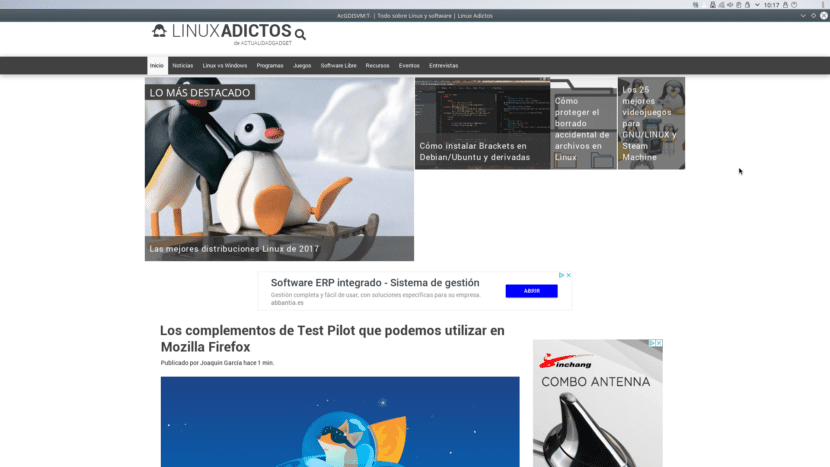
There are many programs that consume few resources within Gnu / Linux and that means that we can have common functions within computers with few or very old resources. In this case we are going to talk about Surf, a lightweight, very light web browser. Such is its lightness that it has no address bar.
Surf is a web browser aimed at users looking for minimalism, surf the Internet and only the pages that they visit the most or visit daily. The Surf web browser opens from the terminal and only opens a certain web page that we indicate. From here, the user can navigate but only through links that contain the web page. As you can see, Surf is a minimalist web browser but also ideal for those who only consult a wiki or only use the internet as a large knowledge database.
Surf is in the official repositories of the main Gnu / Linux distributions so it can be installed through the terminal or through the distribution software manager. And its operation is very simple. The surf command is written followed by the url that we want to visit. After pressing enter, a window with the web page will open.
If we want navigate backwards, then we have to press the keys Ctrl + H; if we want move forward in history, then we have to press Ctrl + R and if we want refresh the web page then we have to press the keys Ctrl + L.
Surf also supports add-ons such as an ad blocker or a download manager, but to have it you have to go to the official website, download the plugin and compile it ourselves. It is not very difficult but it is a measure for those who get carried away by the fashion of accessories and forget the essence.